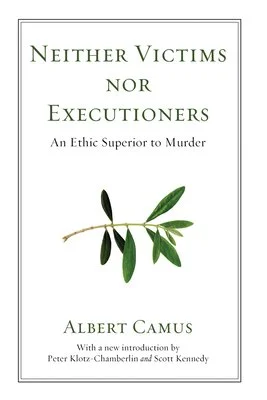Albert Camus
Albert Camus (1913-1960) was a Franco-Algerian novelist, short story writer, playwright, essayist, journalist, and philosopher who was awarded the Nobel Prize for Literature in 1957, when he was 44 years old. He was the second-youngest to win the Nobel for a life-body of work, the first being Rudyard Kipling in 1907 (Kipling was 41 at the announcement). Camus and Kipling make an interesting coincidental pair, since both of their careers were engagements with colonialism, its consequences tragic or strengthening or both. Camus during his lifetime and certainly after his death was hunted by categorical thinkers to capture, cage, and display him as identified as the representative of this or that -ism. He always eludes them. He was an artist, a political man, a newsman, and a wonderfully complex human being.
I will gradually add associated writers, sometimes friends of his (Beauvoir), sometimes later writers who intertwine a work with Camus’s legacy (Daoud). His too-short life, ended by a car wreck, was in the midst of a dramatic time. I don’t think he would want to be isolated from it or his fellow travelers.
Neither Victims nor Executioners: An Ethic Superior to Murder
Neither Victims nor Executioners: An Ethic Superior to Murder
"The reissue of Camus' seminal essay, 'Neither Victims nor Executioners,' could hardly be more timely. In Iraq and Afghanistan, the hideous march to oblivion goes on apace. America is ironically reversing the ethic proposed by Camus' title. American adventuring, playing the part of omnipotent executioner, is creating multitudes of victims. No search is undertaken for a 'third way.' Indeed, were the Camus thesis proposed, it would evoke only wide-eyed innocent arrogance. Kennedy and Klotz-Chamberlin have dedicated a lifetime to the 'third way' commended by Camus. Our gratitude to our mentors for a prescient, timely introduction." --Fr. Daniel Berrigan, SJ "Pacifists are not looking for a Utopian outlook nor unrealistic expectations. Many said, 'South Africa will not change.' But it did. Others looked at Northern Ireland and, it took years, but it also changed. The Soviet Union changed. The Middle East will change but not through violence or murder. We still think of ourselves within borders, protecting ourselves from others, Europe took its borders away and they are better. South, Central, and North America should take away their borders, as well as people in the Middle East. . . . We should build a culture of nonviolence through an understanding of human rights without regard to race, religion, and nationality." --Mubarak Awad, founder of Nonviolence International "If we spontaneously approve of nuclear terrorism, if we become apologists for the uninhibited use of naked power, we are thinking like Communists, we are behaving like Nazis, and we are well on the way to becoming either one or the other. In that event we had better face the fact that we are destroying our own Christian heritage." --Thomas Merton

